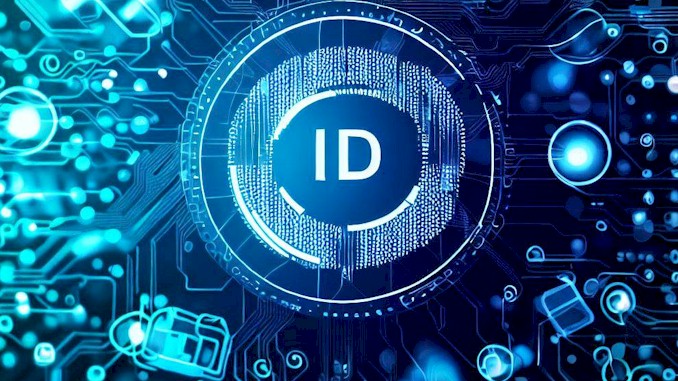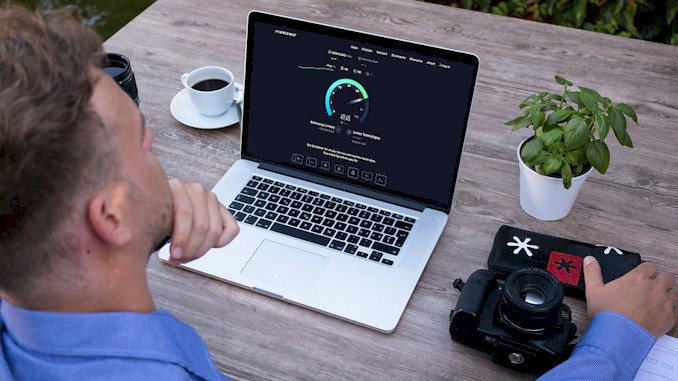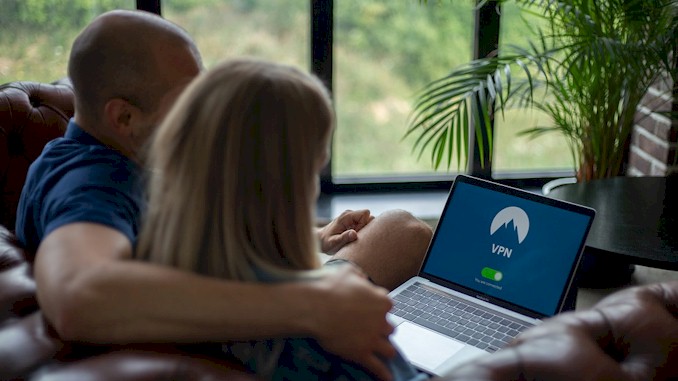Privacy at a Price: Evaluating Free and Paid VPN Options
I remember the first time I sat down to really dissect the whole free versus paid VPN debate. It was a rainy Saturday afternoon, and I was armed with a pot of strong coffee and a determination to figure out what would really keep my data secure. See, it’s kinda like choosing between a free sample at the grocery store and a full meal at a nice restaurant—sure, the sample is free, but is it really enough to satisfy your hunger? After spending years in the trenches of information security, I’ve seen it all: the good, the bad, and the ugly of VPN services. Let’s dive into what I found, because trust me, this isn’t just about saving a few bucks—it’s about keeping your digital life secure.
The core takeaway from the comparison between free and paid VPNs is that paid VPNs generally offer superior privacy, security, and performance. While free VPNs may suffice for basic use, they often come with limitations and potential risks, making paid services a more reliable choice for comprehensive protection.
But that’s just scratching the surface. I’ve got a treasure trove of insights from my deep dive into VPNs, and I’m here to share it all with you. From the nitty-gritty details of encryption protocols to the hidden dangers of free services, there’s a lot more you need to know. So, grab a coffee and stick around—what I’m about to reveal could be the difference between a secure online experience and leaving your digital front door wide open.
What Exactly is a VPN and Why Do You Need One?
When I first heard about VPNs, or Virtual Private Networks, I was skeptical. The idea that a small piece of software could keep my online activities hidden seemed too good to be true. But as I delved deeper into the world of information security, I realized just how essential VPNs are in today’s digital landscape. At its core, a VPN creates a secure, encrypted connection between your device and the internet, masking your IP address and safeguarding your data from prying eyes.
Think of it this way: it’s kinda like sending a secret letter through an unbreakable, invisible tube that only you and the recipient can access. This tube ensures that no one else can intercept or read your message, providing a crucial layer of privacy and security. In an era where cyber threats are ever-evolving, using a VPN is no longer just an option—it’s a necessity.
One striking example that comes to mind is when I was consulting for a mid-sized company. They had experienced a data breach due to unsecured Wi-Fi usage by employees. After implementing a VPN solution, not only did their security posture improve, but employee awareness about safe online practices skyrocketed. This real-world scenario underscores the importance of a VPN in protecting sensitive information, whether you’re a business or an individual.
Now, let’s talk numbers. According to a report by GlobalWebIndex, nearly 26% of internet users have used a VPN in the past month. This statistic highlights the growing awareness and adoption of VPNs as essential tools for online privacy and security. But the question remains: why do you need one?
First, consider the vast amount of personal data we share online daily. From banking transactions to social media interactions, our digital footprint is immense. A VPN shields this data from cybercriminals and intrusive third parties. Additionally, it’s not just about protection from hackers; it’s also about reclaiming your privacy from data-hungry corporations and government surveillance.
Another compelling reason to use a VPN is to bypass geo-restrictions and censorship. Whether you’re traveling abroad and want to access content from home or live in a region with strict internet controls, a VPN can give you the freedom to browse the web without limitations. It’s kinda like having a passport that grants you unrestricted access to the global internet.
Understanding what a VPN is and why you need one is the first step towards a safer, more private online experience. As we continue exploring the nuances of free versus paid VPNs, keep in mind the critical role a VPN plays in protecting your digital identity. Trust me, once you grasp the full picture, you’ll wonder how you ever managed without one.
The Real Differences Between Free and Paid VPNs
When it comes to VPNs, the age-old adage “you get what you pay for” couldn’t be more accurate. The differences between free and paid VPNs are stark, impacting everything from security to speed. Let’s break down these differences in detail so you can make an informed decision about which option is right for you.
1. Security and Privacy
Free VPNs often come with significant security trade-offs. Many free services log user data, inject ads, or even sell your information to third parties. This compromises the very privacy a VPN is supposed to protect. Paid VPNs, on the other hand, typically offer strict no-logs policies, robust encryption protocols, and advanced security features like kill switches and DNS leak protection.
| Feature | Free VPNs | Paid VPNs |
|---|---|---|
| Logging Policies | Often log user data | Strict no-logs policies |
| Encryption | Basic encryption, often outdated | Advanced, up-to-date encryption |
| Ads | Frequently inject ads | Ad-free |
| Data Selling | Often sell user data | No data selling |
2. Performance and Speed
Performance is another major differentiator. Free VPNs usually have limited servers, resulting in slower speeds and higher latency due to overcrowding. This can be frustrating, especially for activities like streaming or gaming. Paid VPNs offer a wide range of servers across multiple locations, ensuring faster, more reliable connections. This investment in infrastructure translates to better overall performance.
3. Bandwidth and Data Caps
Free VPNs often impose strict data caps, limiting the amount of data you can use per month. This makes them unsuitable for high-bandwidth activities like streaming HD videos or large file downloads. Paid VPNs usually provide unlimited bandwidth, allowing you to browse, stream, and download without worrying about hitting a data limit.
4. Customer Support
Customer support can be a lifesaver when you encounter issues with your VPN. Free VPNs typically offer minimal to no customer support, leaving users to troubleshoot problems on their own. Paid VPNs, however, usually provide 24/7 customer support through various channels like live chat, email, or phone, ensuring you can get help when you need it.
5. Features and Customization
Paid VPNs come packed with additional features that enhance your online experience. These can include split tunneling, allowing you to choose which apps use the VPN, multi-hop connections for added security, and specialized servers for streaming or torrenting. Free VPNs generally lack these advanced features, offering a more basic and less customizable experience.
6. Real-World Experiences
I recall working with a client who initially relied on a free VPN for their small business. They faced constant speed issues and occasional data breaches, which impacted their operations significantly. After switching to a paid VPN service, not only did their connection speeds improve, but their data security was also markedly enhanced, allowing them to focus on growing their business without constant tech headaches.
While free VPNs might seem appealing due to their zero-cost entry, the limitations and potential risks often outweigh the benefits. Paid VPNs offer comprehensive security, better performance, and a suite of features that provide true value for your investment. Understanding these differences is crucial in choosing the right VPN to safeguard your digital life effectively.
How Secure Are Free VPNs, Really?
When we talk about free VPNs, the question of security is paramount. While the idea of getting something for nothing is always tempting, the reality often involves significant compromises. Let’s delve into the specifics of how secure free VPNs truly are, and what you might be risking by choosing a free option.
1. Encryption Standards
Many free VPNs use outdated or weak encryption protocols. While a paid VPN typically employs advanced encryption standards like AES-256, which is considered virtually unbreakable, free VPNs may rely on older technologies that are more vulnerable to attacks. This lower level of encryption can leave your data exposed to cybercriminals and government surveillance.
| Security Aspect | Free VPNs | Paid VPNs |
|---|---|---|
| Encryption Protocols | Often outdated (PPTP, L2TP) | Advanced (AES-256, OpenVPN) |
| Data Integrity | Potentially compromised | Robust and reliable |
| Vulnerability to Attacks | Higher | Lower |
2. Logging and Data Selling
A major concern with free VPNs is their logging policies. Many free services log user data, including browsing history, IP addresses, and connection timestamps. This information can then be sold to third parties, such as advertisers or even malicious actors. Paid VPNs, by contrast, often have strict no-logs policies, ensuring that your online activities remain private.
An independent study by CSIRO found that 75% of free VPNs contained tracking embedded in their software, compared to only 20% of paid VPNs. This statistic underscores the inherent risks in trusting a free service with your personal information.
3. Ads and Malware
To generate revenue, free VPNs frequently inject ads into your browsing experience. These ads are not only intrusive but can also be a vector for malware. Malicious ads can compromise your device, leading to data theft or other cyber threats. Paid VPNs, on the other hand, do not rely on advertising revenue and thus offer a cleaner, safer browsing environment.
4. DNS and IP Leaks
Another critical issue with free VPNs is the risk of DNS and IP leaks. A DNS leak occurs when your DNS requests are exposed to your ISP, while an IP leak reveals your actual IP address despite being connected to a VPN. These leaks undermine the purpose of using a VPN, which is to keep your online activities private. Paid VPNs typically have built-in protections against these leaks, ensuring that your true IP address and DNS requests remain hidden.
5. Limited Server Networks
Free VPNs often have a limited number of servers, which can lead to overcrowded connections and higher vulnerability to attacks. With fewer servers, it’s easier for cybercriminals to target and compromise them. Paid VPNs usually offer extensive server networks across multiple countries, reducing the risk of any single point of failure.
6. Real-World Example
I once assisted a friend who was using a free VPN to access streaming services while traveling. They were constantly bombarded with ads, and their connection frequently dropped. Worse, their email account was hacked, likely due to the VPN’s poor security measures. Switching to a paid VPN not only resolved these issues but also provided a much more secure and reliable browsing experience.
As you can see, while free VPNs might provide a basic level of security, they often fall short in critical areas, leaving your data and privacy at risk. Paid VPNs, with their superior encryption, no-logs policies, and robust security features, offer a much more secure and reliable option for protecting your online activities. Understanding these security implications is crucial for making an informed decision about which VPN to trust with your data.
Performance: Is Your Free VPN Slowing You Down?
When it comes to VPNs, performance is a critical factor, especially if you use the internet for streaming, gaming, or large file transfers. The question is: does using a free VPN slow you down? The short answer is often yes, and here’s why.
1. Server Overcrowding
Free VPNs typically have a limited number of servers to handle a large number of users. This leads to server overcrowding, which can significantly slow down your internet speed. Think of it as trying to drive on a highway during rush hour—it’s slow, frustrating, and you’re not getting anywhere fast. Paid VPNs, by contrast, offer extensive server networks with many locations, ensuring better load distribution and faster speeds.
| Performance Aspect | Free VPNs | Paid VPNs |
|---|---|---|
| Server Availability | Limited, overcrowded | Extensive, well-distributed |
| Connection Speeds | Often slow | Generally fast |
| Bandwidth Limits | Often limited | Usually unlimited |
2. Bandwidth and Data Caps
Many free VPNs impose strict bandwidth and data caps to manage their limited resources. This means you might experience throttled speeds or even get cut off once you exceed a certain data limit. Paid VPNs generally offer unlimited bandwidth, allowing you to stream, game, and browse without any interruptions.
3. Connection Stability
Free VPNs often suffer from connection stability issues. Frequent drops and inconsistent speeds can be particularly problematic for activities that require a stable connection, such as video conferencing or online gaming. Paid VPNs invest in robust infrastructure to provide stable, reliable connections.
4. Throttling by ISPs
Some free VPNs are known to be flagged by Internet Service Providers (ISPs), leading to intentional throttling of your internet speed. ISPs can recognize the traffic coming from these VPNs and may slow it down, impacting your overall internet performance. Paid VPNs, with their obfuscation features, can help bypass ISP throttling, ensuring you maintain high speeds.
5. Real-World Experiences
I remember a colleague who was an avid online gamer and used a free VPN to try to bypass geo-restrictions on game servers. He constantly complained about lag and connection drops, which severely impacted his gaming experience. After switching to a paid VPN, not only did his ping times improve, but he also enjoyed a more stable connection, transforming his gaming sessions.
6. Speed Tests and Data
Speed tests conducted by independent reviewers often show a stark difference between free and paid VPNs. For instance, a test by Tom’s Guide revealed that free VPNs typically reduce your internet speed by 50-75%, while paid VPNs only cause a 10-20% drop on average. This data underscores the performance advantage of investing in a paid service.
Free VPNs may seem alluring due to their free of cost, but their performance issues might seriously impair your internet experience. These problems, which include bandwidth limitations, server overpopulation, and unstable connections, can make utilizing a free VPN more trouble than it’s worth. Paid VPNs are a superior option for individuals who value speed because they provide a more smoother and faster online experience because to their large server networks, limitless bandwidth, and reliable connections.
Privacy Risks: What You’re Sacrificing with a Free VPN
Using a free VPN often means compromising on privacy in ways you might not expect. Here’s a closer look at the privacy risks associated with free VPNs and what you could be sacrificing by opting for a no-cost solution.
1. Logging and Data Collection
One of the most significant concerns with free VPNs is their logging policies—or lack thereof. Many free services log user data such as IP addresses, browsing history, and even DNS queries. This data can then be sold to third parties, including advertisers and data brokers, compromising your anonymity and privacy online. Paid VPNs, in contrast, typically have strict no-logs policies, ensuring that your online activities remain private and confidential.
| Privacy Aspect | Free VPNs | Paid VPNs |
|---|---|---|
| Logging Policies | Often log user data | Strict no-logs policies |
| Data Collection | Collects and sells data | Minimal data collection |
| Privacy Transparency | Lack of transparency | Clear privacy policies |
2. Jurisdiction and Legal Concerns
The jurisdiction in which a VPN operates can have significant implications for user privacy. Free VPNs may be headquartered in countries with weak privacy laws or part of multinational corporations that must comply with government requests for data. This can expose your information to surveillance or legal demands without your consent. Paid VPNs often operate under more stringent privacy regulations and offer clearer transparency regarding data handling practices.
3. Advertisements and Tracking
To generate revenue, free VPNs often inject advertisements into your browsing sessions. These ads are not just annoying—they can also be used to track your online behavior, creating detailed profiles of your interests and activities. This data is then used to target you with personalized ads or sold to third parties for marketing purposes. Paid VPNs do not rely on ad revenue and therefore offer an ad-free, more private browsing experience.
4. Security Vulnerabilities
Free VPNs may lack the resources to invest in robust security measures, making them vulnerable to data breaches and cyber attacks. In a study by AV-Test, researchers found that many free VPN apps contained critical vulnerabilities that could compromise user security. Paid VPNs, on the other hand, prioritize security with regular audits, bug bounties, and dedicated teams focused on protecting user data.
5. Third-Party Involvement
Free VPNs often partner with third-party services to offset costs, which can introduce additional privacy risks. These partnerships may involve sharing user data or integrating tracking technologies into the VPN software. Paid VPNs are more likely to maintain control over their infrastructure and limit third-party involvement, reducing the potential for data exposure.
6. Real-World Implications
I once assisted a friend who used a free VPN to access streaming content from abroad. Despite thinking she was protecting her privacy, she later discovered that the VPN was logging her data and selling it to advertisers. This breach of trust not only compromised her online anonymity but also exposed her personal information to unknown third parties. Switching to a reputable paid VPN restored her confidence in browsing securely and privately.
Free VPNs may seem like a convenient way to get online anonymity, but there are typically serious privacy dangers associated with using them. The trade-offs can exceed the advantages, ranging from user data recording to exposing you to targeted advertisements and security problems. With their strict privacy regulations, ad-free interface, and strong security features, paid VPNs offer a more dependable and trustworthy way to protect your online privacy. Making an informed choice regarding which VPN provider to entrust with your private data requires an understanding of these hazards.
The Cost of Paid VPNs: Are They Worth It?
When considering a paid VPN service, it’s natural to weigh the costs against the benefits. Here’s a detailed exploration of what you get with a paid VPN and whether the investment is worthwhile for securing your online activities.
1. Comprehensive Security Features
Paid VPNs often come with a suite of security features designed to protect your data and privacy. These can include:
- Advanced Encryption: Utilizing strong encryption protocols like AES-256 to safeguard your internet traffic from interception.
- No-Logs Policies: Committing to not collecting or storing user activity logs, ensuring your online activities remain private.
- Kill Switch: Automatically disconnecting your internet if the VPN connection drops, preventing data leaks.
- DNS Leak Protection: Ensuring that your DNS queries remain within the encrypted VPN tunnel, keeping your browsing history private.
- Multi-Hop Connections: Routing your internet traffic through multiple servers for added anonymity and security.
Comparatively, free VPNs often lack these advanced security measures, leaving your data more vulnerable to interception and exploitation.
2. Enhanced Privacy and Anonymity
Paid VPNs prioritize user privacy with clear no-logs policies and robust measures to protect your identity online. They often operate under strict privacy regulations and are headquartered in jurisdictions known for respecting user privacy rights. This contrasts with free VPNs, which may compromise privacy through data logging, tracking, and ad-based revenue models.
3. Unrestricted Access and Performance
With paid VPNs, you typically gain access to a larger network of servers spread across numerous countries. This diversity not only allows you to bypass geo-restrictions and access region-locked content but also improves connection speeds and stability. Free VPNs, constrained by limited server availability and bandwidth caps, often struggle to deliver consistent performance for activities like streaming HD videos or online gaming.
4. Customer Support and Reliability
Paid VPN services generally offer dedicated customer support available 24/7 via multiple channels such as live chat, email, or phone. This ensures prompt assistance and troubleshooting in case of connection issues or technical problems. In contrast, free VPNs usually provide minimal or no customer support, leaving users to rely on online forums or self-help resources.
5. Value for Money
While paid VPNs require a financial investment, they provide tangible benefits that justify the cost for many users. These include enhanced security, privacy assurances, reliable performance, and access to specialized features like split tunneling or dedicated IP addresses. Moreover, the peace of mind knowing your online activities are protected from surveillance and cyber threats is invaluable to those prioritizing digital security.
6. Real-World Considerations
I recall assisting a colleague who initially hesitated to invest in a paid VPN service. After experiencing slow speeds and intrusive ads with a free VPN, they decided to switch. The improvement in performance and peace of mind regarding their online privacy made the investment worthwhile. They could browse securely, stream content without buffering, and trust that their data remained confidential—all crucial factors in their decision.
A premium VPN may be expensive for some customers, but the advantages usually exceed the drawbacks. Paid VPNs provide a complete online presence protection solution, with everything from strong security features and improved privacy protections to dependable performance and helpful customer support. Whether or not to invest in a paid VPN service will depend on your individual demands and goals regarding security and convenience.
Real-World Scenarios: When to Choose Free vs. Paid VPNs
Choosing between a free and paid VPN often depends on your specific needs and circumstances. Let’s explore various real-world scenarios to help you determine when each option might be appropriate.
1. Casual Browsing and Light Security Needs
If you’re primarily looking to secure your browsing sessions when using public Wi-Fi or accessing basic websites, a free VPN could suffice. It provides a minimal level of encryption and anonymity without the financial commitment. However, be mindful of potential privacy risks such as data logging and ad injections that may compromise your security.
2. Accessing Geo-Restricted Content
Free VPNs can be useful for accessing geo-blocked content on streaming platforms or websites. For instance, if you want to watch a show available only in another country, a free VPN with servers in that region could help bypass restrictions. Keep in mind the performance limitations and potential data caps that may affect streaming quality.
3. Temporary or Infrequent Use
In scenarios where you need a VPN for a short period or occasional use, a free VPN might be practical. For example, if you’re traveling and want to access local content temporarily, a free VPN can provide a quick solution without ongoing costs. Just be cautious of the privacy and security trade-offs associated with free services.
4. Enhanced Security and Privacy Requirements
For users prioritizing robust security and privacy protections, especially professionals handling sensitive data or activists in authoritarian regimes, a paid VPN is typically the better choice. Paid VPNs offer advanced encryption, strict no-logs policies, and additional security features like kill switches and DNS leak protection. These measures ensure comprehensive protection against cyber threats and surveillance.
5. Reliable Performance for Streaming and Gaming
If you rely on consistent internet speeds and stable connections for streaming HD videos, online gaming, or large file downloads, a paid VPN is recommended. Paid services invest in extensive server networks, unlimited bandwidth, and optimized performance for various online activities. This ensures you can enjoy seamless browsing without interruptions or buffering.
6. Business and Professional Use
Businesses handling confidential information or remote teams requiring secure access to company networks benefit significantly from paid VPN solutions. Paid VPNs offer enterprise-grade security features, dedicated support, and scalability to accommodate multiple users and devices. This ensures data integrity and confidentiality, critical for maintaining business operations securely.
7. Compliance with Legal and Corporate Policies
In corporate environments or industries with stringent data privacy regulations, using a paid VPN ensures compliance with legal requirements. Paid VPN providers adhere to strict privacy laws and industry standards, offering transparency in data handling practices. This mitigates legal risks associated with data breaches or non-compliance, providing peace of mind to organizations and individuals alike.
Choosing between a free and paid VPN involves weighing the trade-offs between cost, security, and performance. While free VPNs offer basic protection for casual use and occasional needs, they may compromise privacy and suffer from performance limitations. Paid VPNs, on the other hand, provide comprehensive security features, reliable performance, and professional support, making them suitable for users prioritizing robust protection and privacy. Assess your specific requirements and the level of security needed to make an informed decision that aligns with your online privacy and accessibility goals.
My Top Recommendations for Paid VPN Services
Choosing the right paid VPN service can be daunting given the multitude of options available. Here are my top recommendations based on key criteria such as security features, performance, privacy policies, and user feedback.
1. ExpressVPN
ExpressVPN is renowned for its fast and reliable performance, making it ideal for streaming and gaming. It offers AES-256 encryption, a strict no-logs policy, and DNS leak protection to ensure your online activities remain private. With servers in over 90 countries and unlimited bandwidth, ExpressVPN provides unrestricted access to geo-blocked content and ensures a seamless browsing experience.
2. NordVPN
NordVPN is lauded for its robust security features and extensive server network spanning 60 countries. It utilizes double VPN encryption, CyberSec technology for ad and malware blocking, and a strict no-logs policy. NordVPN’s dedicated IP option and specialty servers for streaming and P2P file sharing cater to diverse user needs while maintaining high-speed connections and data privacy.
3. CyberGhost
CyberGhost offers user-friendly apps and strong privacy protections, including AES-256 encryption and a no-logs policy audited by independent firms. With servers optimized for streaming and torrenting across 90 countries, CyberGhost ensures reliable performance and unrestricted access to content. Its automatic Wi-Fi protection and kill switch feature enhance security for users on public networks.
4. Surfshark
Surfshark stands out for its affordability without compromising on security or performance. It provides AES-256-GCM encryption, a strict no-logs policy, and a Camouflage Mode to bypass VPN blocks and censorship. Surfshark’s unlimited simultaneous connections feature and MultiHop functionality offer flexibility for users seeking comprehensive protection across devices and locations.
5. Private Internet Access (PIA)
PIA emphasizes privacy with a proven no-logs policy and strong encryption protocols like AES-256. It offers a vast server network across 78 countries and supports up to 10 simultaneous connections per account. PIA’s MACE feature blocks domains used for ads, trackers, and malware, enhancing user security and browsing experience.
6. VyprVPN
VyprVPN differentiates itself with its proprietary Chameleon protocol, designed to defeat VPN blocking and ensure unrestricted access in restrictive regions. It employs AES-256 encryption, a zero-knowledge DNS service, and operates a no-logs policy independently audited. VyprVPN’s global server network and fast speeds cater to users prioritizing security and performance.
Choosing the Right VPN
When selecting a paid VPN service, consider your specific needs for security, privacy, and performance. Evaluate factors such as encryption strength, server locations, customer support quality, and compatibility with your devices and applications. Many providers offer free trials or money-back guarantees, allowing you to test their services before committing. By prioritizing these criteria, you can find a paid VPN that meets your expectations for online privacy and security effectively.
Conclusion
In conclusion, the choice between free and paid VPN services hinges on more than just cost—it’s about safeguarding your digital footprint and ensuring secure online experiences. While free VPNs offer a basic level of protection, they often come with significant compromises in terms of privacy, performance, and security. Paid VPNs, on the other hand, provide robust encryption, strict no-logs policies, and reliable performance that justify the investment for those prioritizing comprehensive online security.
By understanding the trade-offs outlined in this blog—from data logging and ad injections to server overcrowding and limited security features—you can make an informed decision that aligns with your privacy needs. Whether you’re streaming content, accessing sensitive information remotely, or simply browsing the web, a paid VPN offers peace of mind and assurance that your online activities remain private and protected.
Investing in a reputable paid VPN service not only shields you from potential cyber threats and surveillance but also grants you unrestricted access to global content and ensures consistent internet speeds. Ultimately, the choice is yours, but prioritizing security and privacy in today’s digital landscape is paramount for safeguarding your personal data and maintaining control over your online identity. Choose wisely, stay informed, and enjoy a safer, more secure online experience with the right VPN solution for your needs.







